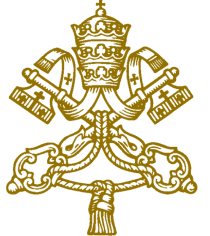Synodal journey, in the Church and for the Kingdom

We publish part of an article by Gloria Liliana Franco Echeverri, ODN, President of the CLAR.
The complete text can be found at Sequela Christi 2021/02
In the Church at the present time, there is an urgency to sharpen our gaze to contemplate reality and to sharpen our ears to listen to the Spirit who never ceases to groan in the cries and complexities of history, in the faces and wounds of the poorest of the poor. It is urgent to go out, to be ill at ease, abandon the status of comfort and paralysis in which so many believers are entrenched. Right now, in this crucial moment of the Church, in this change of epoch, in which the Church sees her future at stake, she must open herself to “a new chapter of her biography, she must open the conciliar dynamism, the synodal method...”.[1] The necessary conversion to which the Church is called presupposes that the Spirit is the protagonist, that it is lived from the centrality of Jesus and in attentive listening to reality. A pastoral conversion is urgently needed. It will be necessary: “to rethink and plan a pastoral ministry in a missionary key in a Church that moves from the paradigm of healing the soul to that of evangelization and mission, this is the transition from a Church of services to a Church at the service of the world and the concrete needs of every man and woman.”[2]
The synodal journey presupposes conversion; it is up to the Church to be that credible narrative of what society expects to read in her. And that means generating that necessary dynamic of relationship, encounter in complementarity and reciprocity. It is a matter of making the ecclesial we possible, of transcending singularities, to live in the gift of plurality, that is where the sense of Church, the sensus Ecclesiae, takes place. And this conversion, which requires transcending individualism, must be assumed by all, because all vocations can fall into the temptation of sufficiency, which limits the ability to go out of oneself and dispose oneself in the condition of a disciple to the encounter.
Consecrated Life is inserted in this synodal pilgrimage convinced of the need for reform, inhabited by the conviction that it is Church and baptismal, mystical, missionary and prophetic. Its commitment today is to rewrite these three essential stories of its identity and mission. To set out with others in this present day of the Church will lead to building together in the living of an authentic spirituality, aware of the identity of ecclesial subjects and that, through baptism and the common priesthood, all have the same dignity and are called to contribute to the configuration of a more synodal Church, in which the presence and mission of women, the laity, the poor and all the emerging historically excluded subjects will be especially necessary and significant.
It is a matter of entering into a dynamic of conversion, a process of listening, reflection and discernment that has as its objective: “to make the Church ever more faithful, available, agile and transparent in order to announce the joy of the Gospel. The challenges are there to be overcome. We must be realistic, but without losing our joy, audacity and hopeful dedication. Let us not allow ourselves to be robbed of missionary hope.”[3] The Church, aware of her identity as a missionary disciple, is invited to a mystical overflow that leads her on a relentless pilgrimage inwardly and outwardly without excuse. May it mobilize her, launch her, set her on the way.
[1] Bueno y Calvo, Una Iglesia Sinodal, 44.
[2] Leal, O Caminho Sinodal com o Papa Francisco, 87.
[3] Raúl Berzosa Martínez, Inteligencia Pastoral en clave de Sinodalidad, Barcelona: CPL, 2020, 46.

